
photofinish’22
PhotoFinish 2022
Editor-in-Chief
Leslie Jill Patterson
Fiction Editor Marcus Burke
Poetry Editor Geoffrey Davis Nonfiction Editor Elena Passarello
Sr. Managing Editor Maeve Kirk
Managing Editors Jennessa Hester Josh Luckenbach Zachary Ostraff
Associate Editors: TIMILEHIN ALAKE, JO ANNA ALBIAR, BROCK ALLEN, EMMA AYLOR, WILLIAM BROWN, DAVID BRUNSON, MCKENAN BUNDY, WILL DENNIS, TYLER FLESER, MEGHAN GILES, GWENDOLYN HILL, VICTORIA HUDSON, AMELIE LANGFORD, LINDA MASI, LANDON MCGEE, BIBIANA OSSAI, REMY PINCUMBE, CATHERINE RAGSDALE, NICOLAS RIVERA, HANNAH RUSSELL, SIERRA SINOR, DUSTI SMITH, GRAYSON TREAT, AND BRIA WINFREE
Cover Photo: Grisha Bruev
Copyright © 2022 Iron Horse Literary Review. All rights reserved. Iron Horse Literary Review is a national journal of fiction, poetry, and creative nonfiction. IHLR publishes three print issues and three electronic issues per year, at Texas Tech University, Lubbock, Texas, through the support of the TTU President’s Office, Provost’s Office, Graduate College, College of Arts & Sciences, and English Department.

FINALISTS
Foreword / LESLIE JILL PATTERSON Higher / LAURA NAGLE
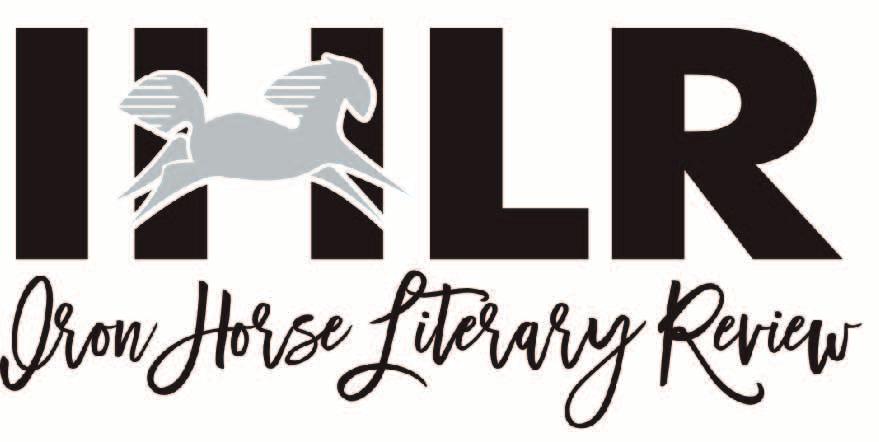
NEW YEAR’S EVE
2022 1
PHOTOFINISH
5
7
10
15
Uvalde / ELISABETH MURAWSKI
Under the Influence / SUSAN BARRY-SCHULZ
& Then #17 / SEAN CHO A.
Watteau for the Win / JEFFREY HECKER
Icarus at the Carnival / JEFFREY HASKEY-VALERIUS
I ride the swing carousel in the Calabash Nebula, twenty-nine quadrillion miles away / MEGHAN KEMP-GEE
A Quantum Tilt / JEMMA LEIGH ROE
MISCELLANY
The Taste of That / CIARA ALFARO Contributors
WINNER
17
18 22
32
28
38
In the spring of 2022, when I picked this year’s PhotoFinish prompt, a picture taken by Neale Cousland, I was hunting joy. It felt like Iron Horse hadn’t dedicated an issue to delight, pleasure, or triumph in years. Since then, of course, we’ve released our Bliss Issue, featuring our 1000th contributor, and it feels right to follow that collection of poems, stories, and essays with this New Year’s Eve edition focusing on amusement parks.
Putting this PhotoFinish together, we had fun simply selecting the artwork that accompanies this year’s winner as well as the eight finalists: so much light and motion and thrill. Ciara Alfaro’s prize essay, “The Taste of That,” is one of the many pieces here that also reach back and touch upon youth and all its emotions, and we were pleased to learn that Ciara hails from Lubbock, that she spent her childhood here in West Texas, gave her summer nights to Joyland amusement park, a beloved tradition here for so many kids and teens. Locally owned and operated for over fifty years, it nearly shuttered its doors this year but was rescued by another family, who will take on the legacy in 2023. Ciara is a young writer neither I nor my staff had met or heard of, but here she is, in our pages, revisiting a Lubbock icon while she works toward an MFA at the University of Minnesota. We’re glad to publish her work at the start of her career.
Of course, not every selection in this issue is a container for carefree enjoyment. There’s much uncertainty as well: the loss of love and the awestruck wonder of how big (and empty) our world is. And we remain

1 Foreword
haunted by Elisabeth Murawski’s vision—how she saw the Uvalde victims in our photo, the shooter event having nearly coincided with the release of this year’s prompt. Every time I look at Cousland’s photo now, I see the empty chairs first, rather than the filled ones.
Other writers honed in on the bare feet of one rider (where are her shoes? did they fall?), the Sunday dress and heels of another rider (where has she just come from?), and all their hands gripping the chains (what if they let go?). Then there’s the Rococo art on the ride’s dome, everyone’s proximity to sky, and, finally, how the riders have turned their backs on us. Every year, this is the thing we love most about publishing an ekphrastic issue: discovering all the details in the photo that we hadn’t noticed. What stories, we ask ourselves when we choose the prompt, will our submitters find to surprise us?
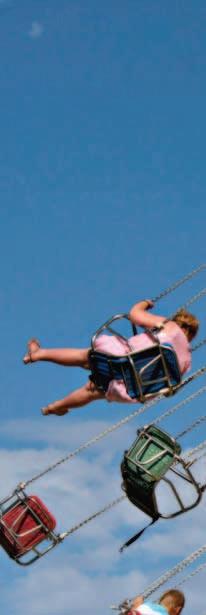
We hope you enjoy these nine ekphrastic works! And don’t forget to check out our 2023 prompt, unveiled in May on our website, and then submit your own responses next summer. We look forward to reading them!
Have a happy New Year—
LESLIE JILL PATTERSON E DITOR
IHLR PhotoFinish 2022
 Photo Credit: Neale Cousland
Photo Credit: Neale Cousland

4
IHLR PhotoFinish 2022
Higher
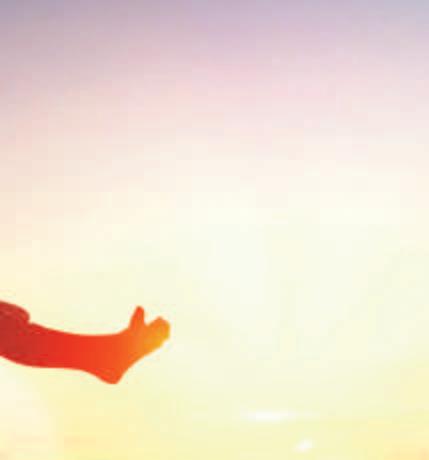 LAURA NAGLE
LAURA NAGLE
She wants to go higher. She doesn’t know fear. There’s no such thing as pushing her too hard, no such thing as her noticing that she’s lingering too far from the ground before swinging back in the other direction. Still, you struggle to take this request seriously, seeing as how she can’t yet pronounce the r sound and is putting the em-pha-sis on the wrong syl-la-ble. She’s loud as heck, though; kid can’t pronounce much of anything yet, but she’s got a voice that carries. Hi-YAH! The neighbors couldn’t be faulted for thinking Miss Piggy is in your backyard, doling out karate chops left and right. Someday you’ll switch out the bucket for a plain swing seat. You’ll change the length of the chain. You’ll replace the chain altogether when she’s old enough and bold enough to vocalize how badly the orangey-red chain clashes with the cotton-candy-pink seat. It’s an attack on the eyes when you look straight at it. You’ll feel like a fool for not noticing that. Eventually she’ll swing on her own; she won’t need you to push her, won’t need you at all. She’ll say so right to your face. She’ll kick off her shoes just because you say it’s important to keep them on, press her open palms against the chains just because you tell her to hold on properly.
If you’re lucky, the day you decide it’s time to dismantle the backyard swing set, she’ll hop on and ask you for one last push. This time, she won’t want to go higher, but farther—not to be pushed, but to be launched. You’ll pull the seat back and hold it as far up as your arms will reach. You’ll remind yourself that the whole point of all of this, all along, has been to lift her up and let her go.
5
Fiction Laura Nagle
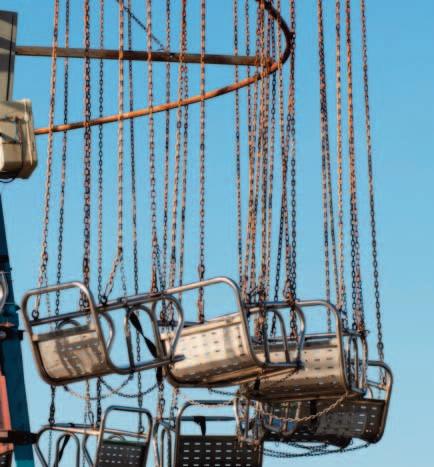
Uvalde
So many hands are tied to the fast-acting trigger, the infinite magazine. A face gone in seconds. Those empty flying chairs should be theirs, the kids in the crosshairs tapping their cell phones, bleeding out among the pencils and the books.
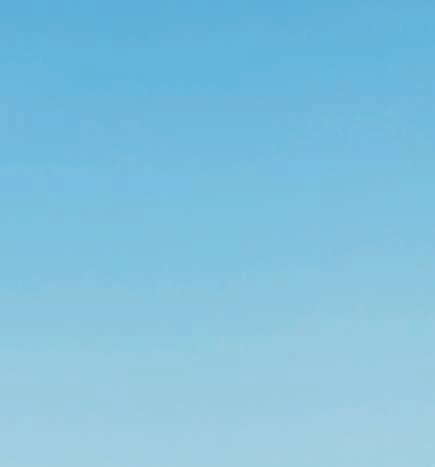
7
Elisabeth Murawski
Poetry Elisabeth Murawski
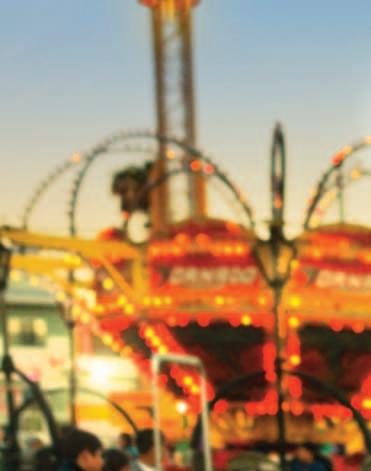
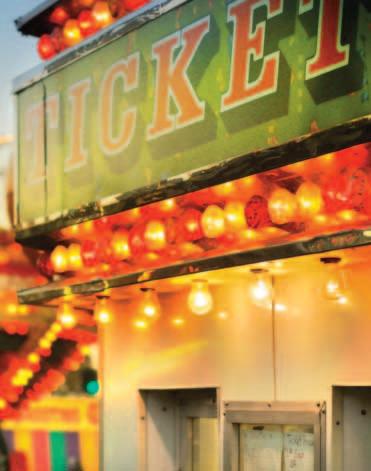
Under the Influence
SUSAN BARRY-SCHULZ
The day was anything but rare, the sky a summer blue, the sun the headache-giving kind, but still we split a six-pack in the picnic area, which wasn’t a good idea. Yellowjackets hovered, sometimes slipping down into the open can of Dr. Pepper we passed back and forth until we felt better. Do not operate heavy machinery, I kept thinking, but you were already at the top of the carpeted ramp choosing your favorite color, drawing the chain across your lap. I knew then I’d want to bare my soul to you. We orbited like planets around a strange music for a while, your bare soles swinging free and out of reach. I thought you’d turn back to look at me once.
10 IHLR PhotoFinish 2022
 Photo Credit: daktales.photo
Photo Credit: daktales.photo
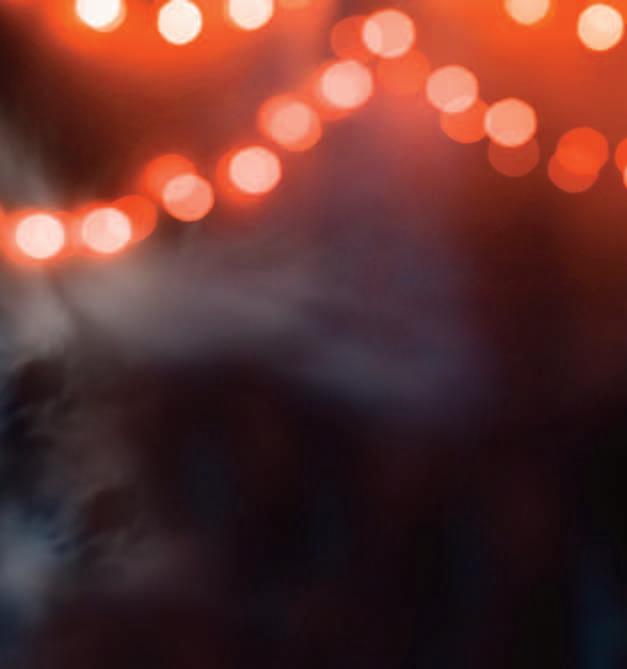
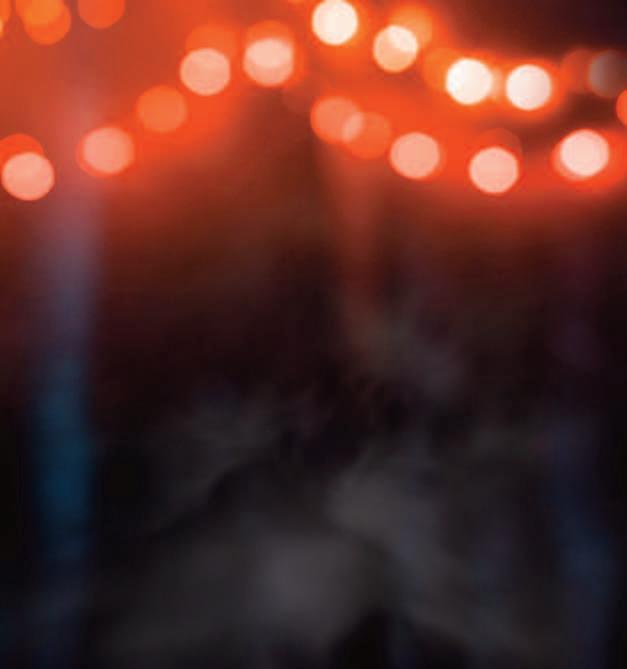

14
IHLR PhotoFinish 2022
Photo Credit: Ana Maria Tone
& Then #17
SEAN CHO A.
the sound the ground and then finally its object. once there was a person in cave: shadows assumed. once we fell in love. not with each other but with ourselves. once we went to the town with no love poems and read them our love poems. we become the kings of joy. we the kings: of joy. it’s selfish but we are Doing good work. eventually they grow tired of We. we pack up our things and cut our losses. we go home and take jobs at the factory where they cut up the hacked-up trees. the press secretary says something about Governmental subsidies & Job creation
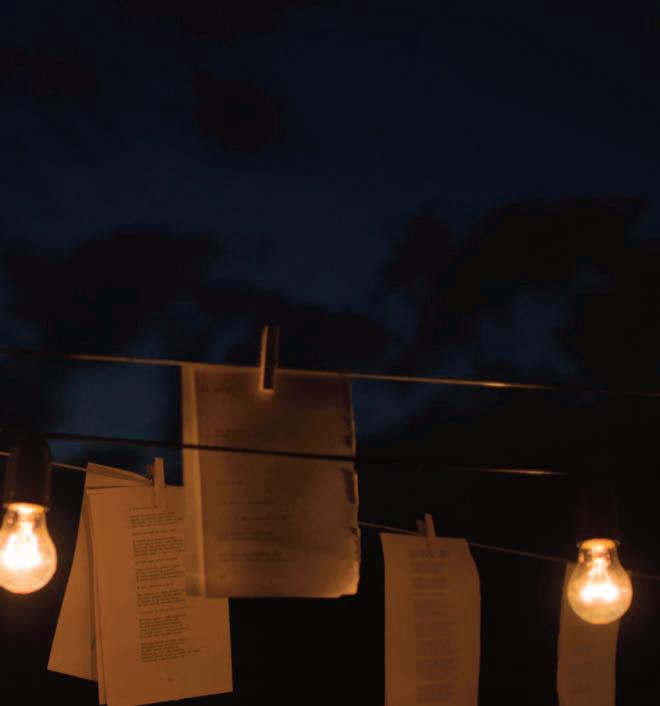
15
Poetry Sean Cho A.
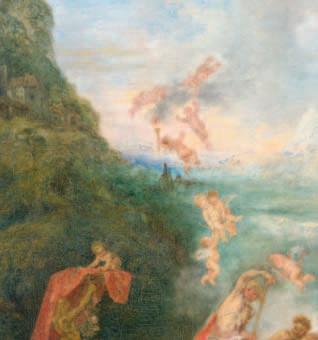
16
IHLR PhotoFinish 2022
Watteau for the Win
JEFFREY HECKER

In 1800, new art students in the Louvre practiced throwing baguette chunks at The Embarkation for Cythera, a painting with two alternate titles: Voyage to Cythera and Pilgrimage to the Isle of Cythera. Watteau also created a follow-up: Pilgrimage to Cythera. Jean-Antoine really liked Venus. Venus tolerated Vulcan and Mars. By 2000, Aristocracy loved Counterinsurgency. The county fair rented a swing ride. Too much fun: fairy lights strung, Rococo masterpieces mounted on discoid dome raised 300 feet into Heaven spun 45 miles per hour. Wicker basket chairs held newer art students, suspended embossed Figaro chains. Little protection, the lap bar stunk like sunscreen. Nobody got off until sensual vice turned to virtue. Everybody swung or rotated.
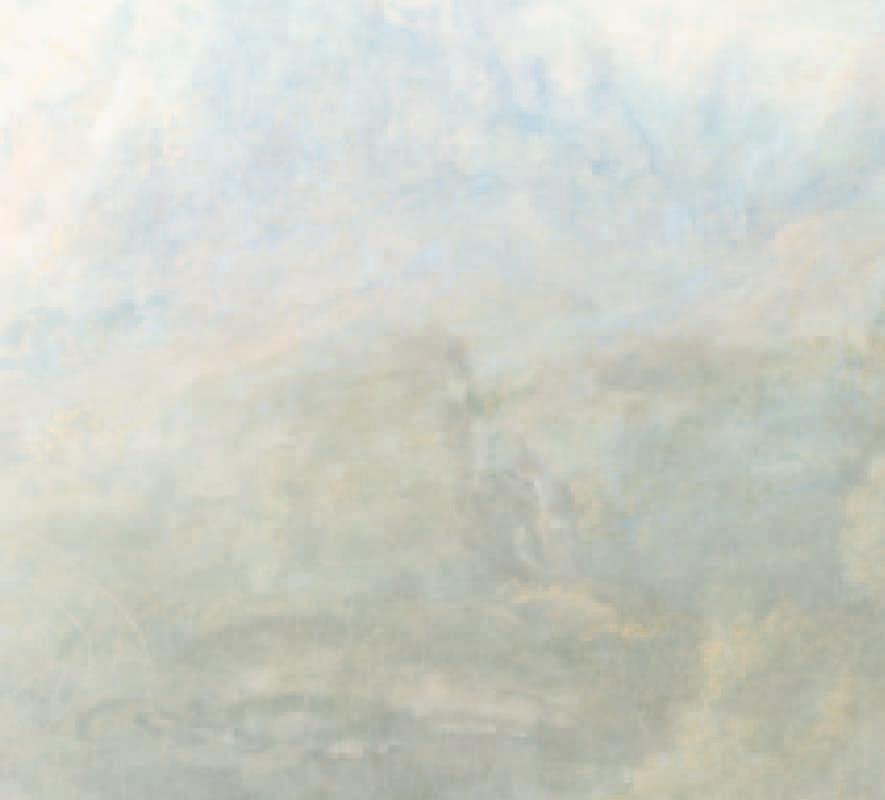
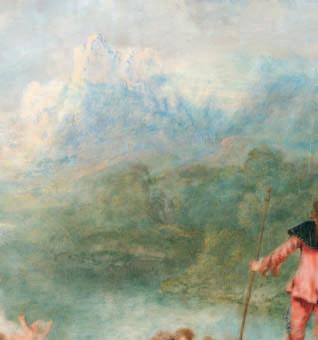
17
Poetry Jeffrey Hecker
As we wait in line for the carnival swings, my boyfriend turns to me and says, “Have you ever wondered how in the hell Icarus didn’t realize his wings were melting?”
I look up from my shoe, a fresh wad of gum like a bloodstain on the heel, and glare at him in response. This man has a question about everything except why we’re still together after all these years.
Icarus at the Carnival
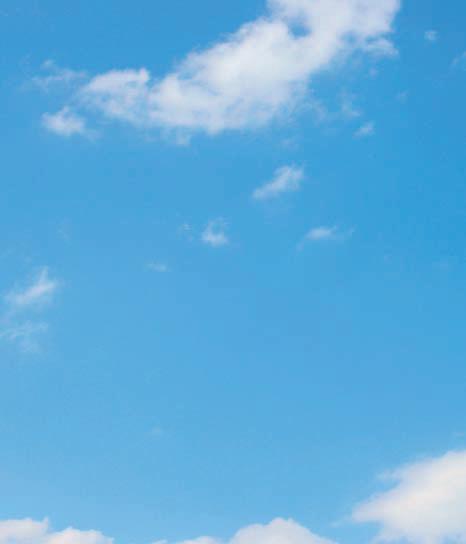 JEFFREY HASKEY-VALERIUS
JEFFREY HASKEY-VALERIUS
“You’d think he would at least start to feel a little warm the closer he got to the sun, and then just, you know… would stop doing that,” he says.
“Right?”
I take off my shoe and use the bottom of my T-shirt to pull off the gum because there’s nothing else to use. It peels away in long strings like a grilled cheese sandwich.
“That’s disgusting,” my boyfriend says and turns around.
The line starts moving. I put my shoe back on and hobble to keep up because it still wants to stick to the blacktop, crackling with every step. When we get onto the platform, my boyfriend turns right, and I want nothing more than to go left, to find a seat on the opposite end. But I can already hear the argument afterward, so I follow him.
I sit in the swing behind him. After the attendant buckles us in, he turns to me and gives a thumbs-up like a little kid. I pretend not to see.
18
IHLR PhotoFinish 2022
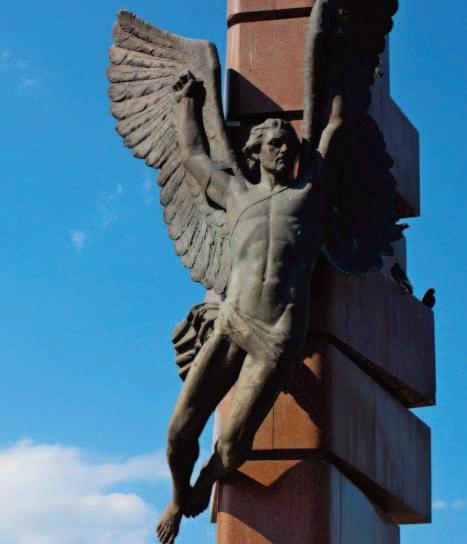
19
Fiction Jeffrey Haskey-Valerius
At liftoff, my stomach flips. It’s not that I’m afraid of heights; I’m just giddy at the idea of flying. We go slow at first, like drones wheezing through the sky, but before I know it, we’re hurtling at a velocity known only to eagles and airplanes and rocket ships alone. The carnival lights stretch and twist into shapes I’ve never seen, neon specters against the big sky.
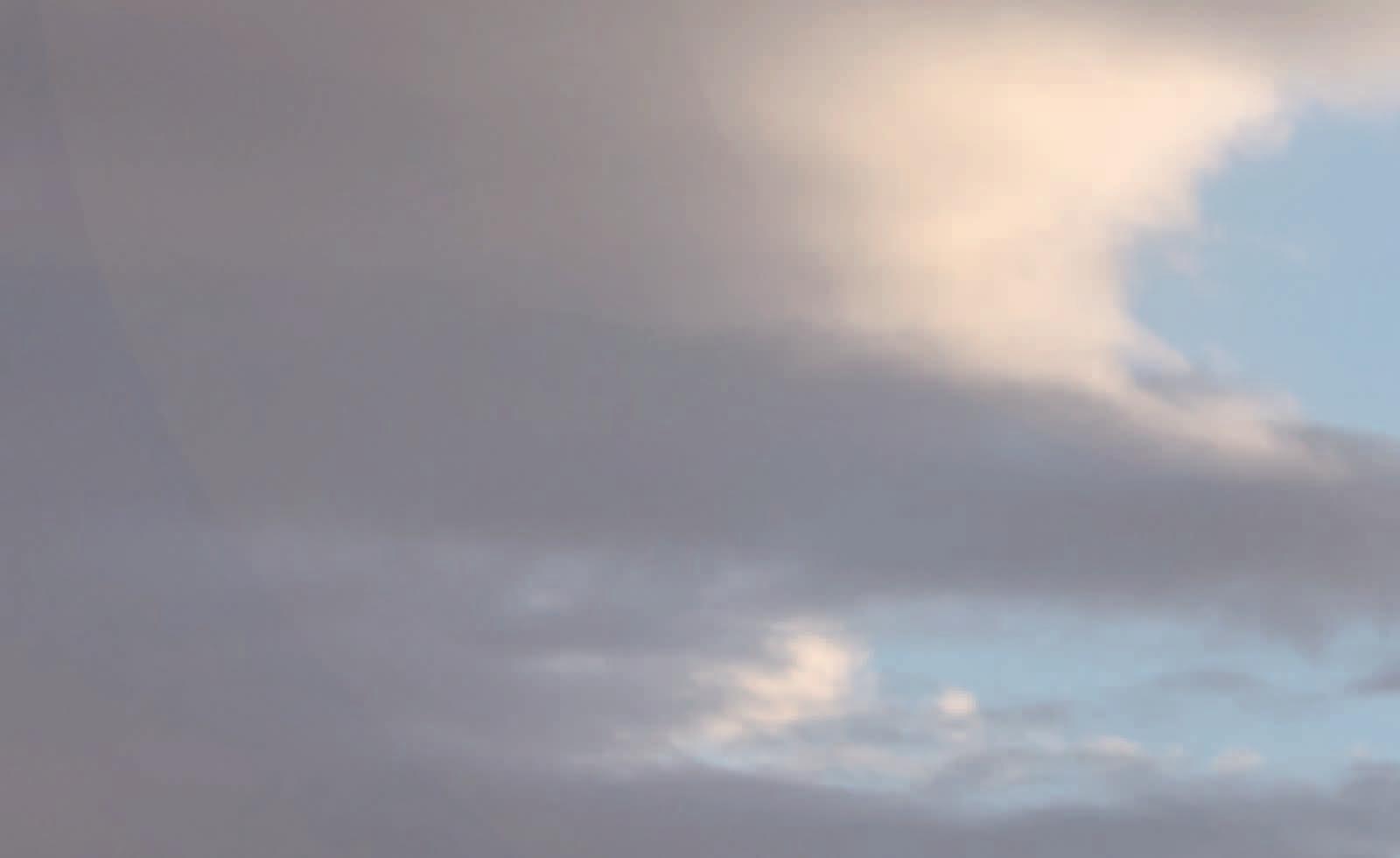
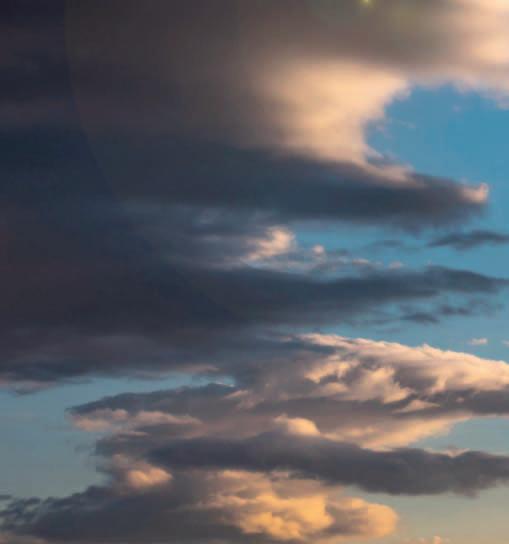
I had thought my body would want to sail out of the seat, that the metal bar would struggle to keep me in, but no. This is as natural as anything. As easy as love. As simple as heartbreak. My boyfriend laughs hysterically, excited about how fast we’re going. When did I begin to hate his smile? The angle of his jaw? The sound of his laugh?
The thought paralyzes me midair. I’m still flying, but frozen. That’s when I know the answer to my boyfriend’s question. Of course Icarus knew his wings were melting. That’s precisely why he soared as close to the sun as he could damn well get. To escape. To be free.
20
IHLR PhotoFinish 2022
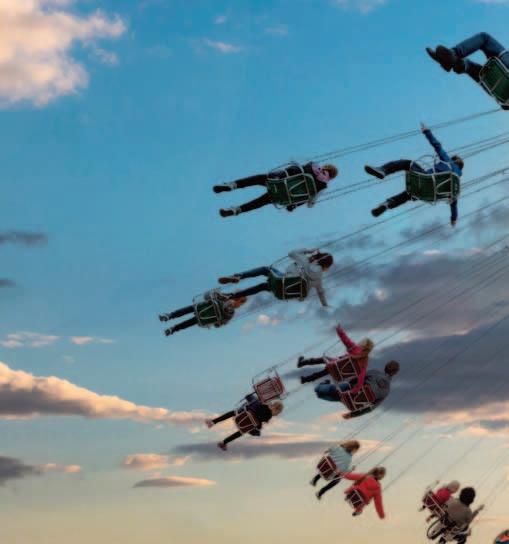
I ride the swing carousel in the Calabash Nebula, twenty-nine quadrillion miles away
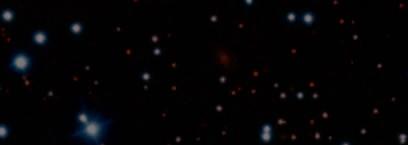
 MEGHAN KEMP-GEE
MEGHAN KEMP-GEE
Forgive me if I can’t stop laughing at the child screaming because he’s lost his shoes. At the fairgrounds, I have questions about distances between things, cracks in the asphalt and the weeds, the dying red giant, the child, the protoplanetary nebula and flying-off shoes. Flying

22
IHLR PhotoFinish 2022
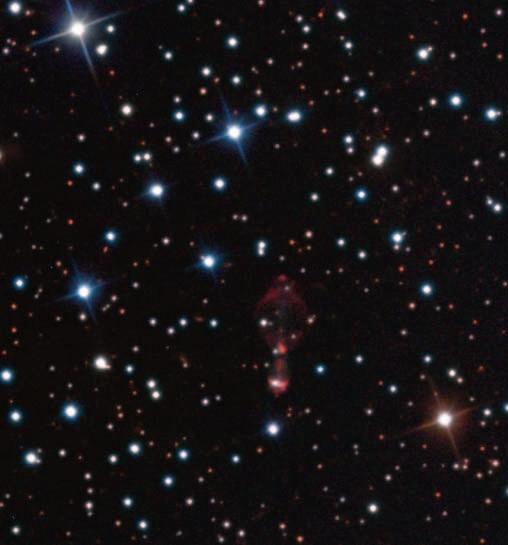
23
Poetry Meghan Kemp-Gee
Photo Credit: Adam Block, Mount Lemmon SkyCenter, U of Arizona
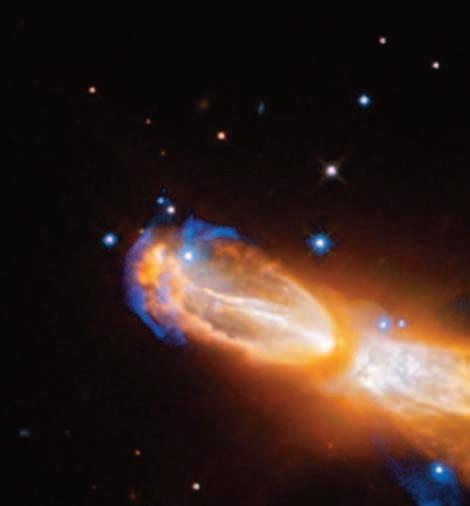
24
IHLR PhotoFinish 2022
and falling, for that matter, are fair game for questions I don’t ask, stepping big-smiling off the ride, lymphatic system off and running, about which of us flying off the swings is worthy, and of what—of more popcorn, the smell of sulfur, supersonic impacts, of wet muzzles and accelerating orange-yellow gas, of ten dandelions in the asphalt, falling past the chains and steel cages unworthy of containing blue-ribbon-winning cows.

25
Poetry Meghan Kemp-Gee
Photo Credit: ESA Hubble
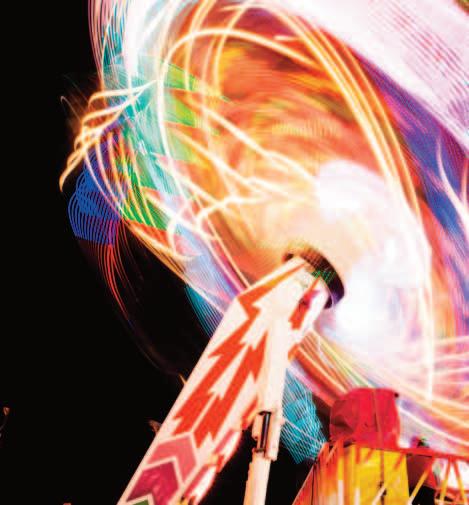
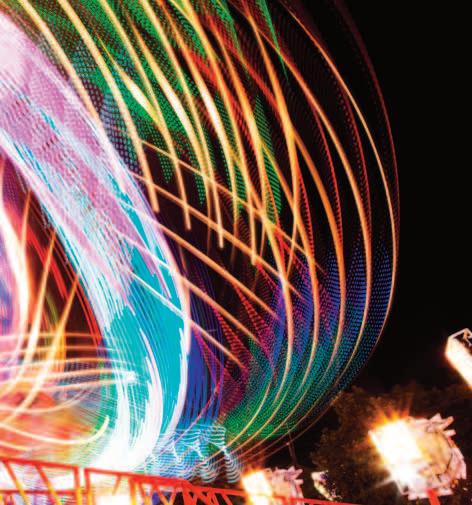
A Quantum Tilt
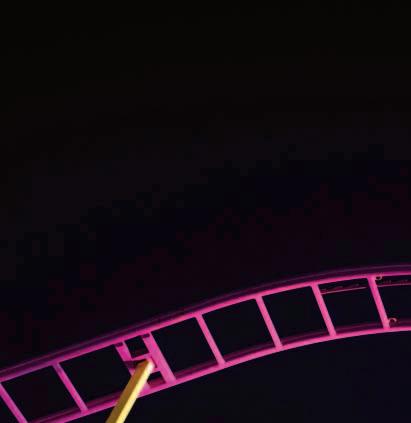 JEMMA LEIGH ROE
JEMMA LEIGH ROE
That summer of drought, we communed with the sky when the green grass turned yellow and died. We held candyfloss clouds in our hands, a startling angle of reality, a quantum tilt back to times we flew in search of castles in the air hidden by the sun, like the starry outlines of beasts and hunters, who hover between us and the void speaking of a distant light that dwells within heavenly bodies—bodies whose origin is fire and water, for which the earth thirsted that summer when we clung to the chains of rides that kept us aloft, defying gravity, the wind touching our soles. We tasted the sweetness of salted caramels dissolve in our mouths and thought this was how angels must live among us.
28
IHLR PhotoFinish 2022

29
Poetry Jemma Leigh Roe
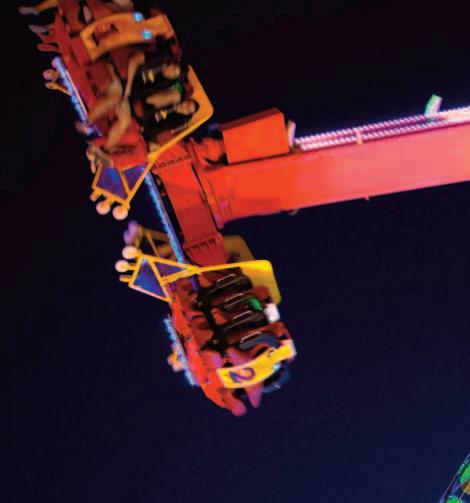 Photo Credit: Ivan Soto Coboss
Photo Credit: Ivan Soto Coboss

We’re at Joyland, hanging upside down in a cheap metal cage, when Mika
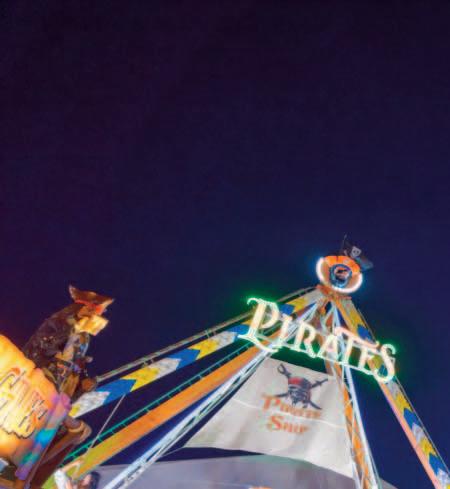
It slips from his cargo shorts and flies. We hear it clatter out of the suspend down like a heart falling into something new. I watch it hit the dirt, pathetical
The Taste of That


I pull my head up to look at him, the whiteboytoy, sitting across from me and M be. He’s busy watching Mikayla. Her knee ignore them—lovesick grinning, phone ou down, veiny-faced and helpless. We’ve been here for long enough that think that the lanky guy who runs the ma below our feet. Mikayla and I both wear C
 CIARA ALFARO
CIARA ALFARO
I don’t want to think about how I ended up half a day straight. Instead, I decide that the WBT has a face like a baseball. It m The machine starts up again, scraping awake. It moves on a big wheel, eventu reach the ground, I stumble out, unable to breathe, disoriented against the hot air, and the WBT stay in the cage for another go around. Next to them, my empty sea
I have to remind them about the fallen phone when they come back out, swo
32
IHLR PhotoFinish 2022
ayla Mason’s whiteboytoy crush drops his phone. ded ride, moving toward the earth slowly, downlly, until the distance between us makes me dizzy. Mikayla. I expect to see him upset. I want him to e knocks against mine, but she’s staring at him. I ut-of-mind, as if we’re not all suspended upside

I feel the helium blood pooling in my cheeks. I achine has forgotten about us. The sky is black Converse, our laces mingling. Time stretches long. p here, third wheel, because Mikayla begged for makes me want to hit something. ually righting our cage against gravity. When we , a blood rush swallowed in my stomach. Mikayla at burns. ollen-lipped.
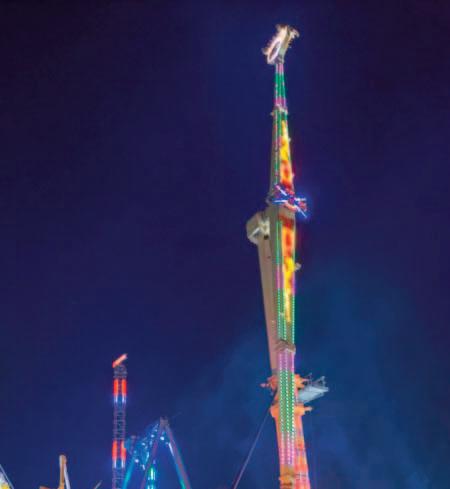
33
Nonfiction
Ciara Alfaro
Photo Credit: Cedric Weber
The summer is almost over. We’re thirteen. In four months, Mikayla will dump the WBT. Her and I will start stealing from people’s lockers during thirdperiod art. We’ll only take from the people who have it coming, who can repay us with the good stuff: Fruit Roll-Ups, CapriSuns,Gushers. We’ll stop taking from locker 142 when Mikayla begins dating Dani Jordan, the goth girl we’re all afraid of. It will be something real, something that lasts for years.
For now, Mikayla and the WBT hold hands out in front of me. I’m here with them and not. It doesn’t matter where I am. The two of them look at each other against the smeary glow of white bulbs and half the city’s strangers.
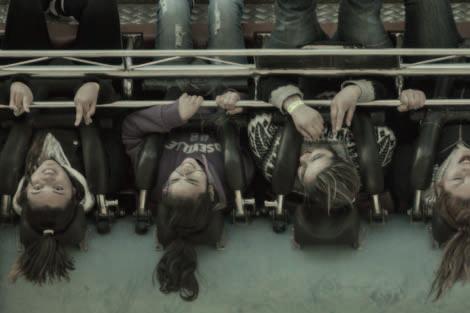

34
IHLR PhotoFinish 2022
She knocked her knee against mine. Mikayla did. This is how I remember it—that pull-pit drop in the bottom of our queasy stomachs, sinking like sand holes, suspended in the summer-still sky, warm flesh pushed there on purpose, the smell of cotton-candy sugar burning.

There are 9,000 ways to say I love you, and Lubbock will hunt every one down. It’ll stick in the throat, like caramel, like dirt, like forever. I feel that place where her knee was, right there. I tell it to be quiet.
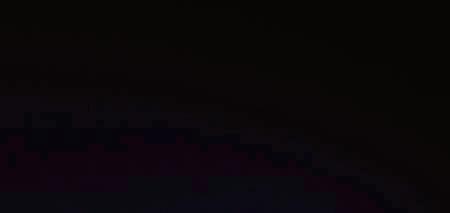
35
Nonfiction Ciara Alfaro
Photo Credit: Wirestorck Creators


Contributors
Sean Cho A. is the author of American Home (Autumn House 2021), winner of the Autumn House Press Chapbook Contest. His work can be found or ignored in Copper Nickel, Prairie Schooner, The Massachusetts Review, and Nashville Review, among others. Sean is a graduate of the MFA program at The University of California–Irvine and a PhD Student at the University of Cincinnati. He is Editor-inChief of The Account.
Of his poem, “& Then #17,” Sean Cho A. says that “any origin story I could craft would feel more like myth than lending the voice of biography to the poem. Interpretively, in this poem, the writer (I) seemed to be interested in contracted phrases, and in romanticizing the idea of a day job or maybe, rather, stepping away for language.”
Ciara Alfaro is a writer, romantic, and descendant of magicians from Lubbock, Texas. Her work has appeared in Cutthroat’s Puro Chicanx Writers of the 21st Century Anthology, Water~Stone Review, Sad Girls Club, and more. Currently, she is an MFA candidate at the University of Minnesota.
Upon seeing this year’s photo prompt, Alfaro says she “felt captivated. This is a scene I know all too well—the blue blank-page sky, the hands gripping summertime chains, the bottoms of those sun-kissed feet. Mostly: the tilted world of the swing carousel beckoning. As a girl, this was my favorite ride. The sight of it was the most dreamy view. What I wanted to capture in this piece was a kind of jawbreaker of that moment rising in the air, heart in girlhood chest, arriving so much higher than you’d meant to. I was quickly brought to this specific scene from my middle school nights at Joyland. I could hear it again: the boy’s phone falling from the ride and the miracle of him forgetting all about it. This night is alive to me still, the way only a fat handful of childhood Lubbock nights can be. I followed this phone and the direction it took me, back to that awestruck feeling of
38 IHLR PhotoFinish 2022
a heart rising higher than you’d meant for it to—and the aftermath of it not lasting forever.”
Susan Barry-Schulz grew up just outside of Buffalo, New York. She is a licensed physical therapist and a poet living with chronic illness. Her poetry has appeared in SWWIM, Barrelhouse, Nightingale & Sparrow, Shooter Literary Magazine, The Wild Word, Bending Genres, MORIA Literary Magazine, Gyroscope Review, Harpy Hybrid Review, West Trestle Review, River Mouth Review, and elsewhere.
Barry-Schulz says that her “poem writing process can be painfully slow. Months to years. Many revisions and reimaginings. I discovered the call for this ekphrastic contest on Twitter late on a FREE SUBMIT weekend. As a disabled poet, I appreciated this opportunity as submission fees can be a significant barrier for me. I also found I enjoyed the experience of working on a deadline. No time for removing and adding back the same phrase over and over! I had been experimenting with the sonnet form all summer—studying the traditional form and structure, and then attempting to expand out of that a bit. In looking at the photograph, I kept trying to fight against the literal, but the freedom evoked by the bare feet on one of the swing riders kept coming forward. At the same time, I was struck by the way a person on this circular ride would remain out of reach to another at a fixed and constant distance. You could never catch up.”
Jeffrey Haskey-Valerius writes poetry and fiction about grief and resistance. His work has appeared in Chiron Review, Eastern Iowa Review, Rust & Moth, and elsewhere. He lives in the Midwest with his husband and dog, and tweets @jeffreyvalerius. Find him online at jeffreyhaskey-valerius.com.
In examining the origins of “Icarus at the Carnival,” Haskey-Valerius says, “Lately, I’ve been thinking about a past relationship, trying to process why I stayed even though I was unhappy. I’m also quite fond of the Icarus myth; it’s a story about hubris in the face of peril. When I saw the photo prompt of the carnival swings, Icarus came to mind immediately, but in thinking about my past relationship, I thought, what if it was a story about grief? What if Icarus did what he did purposefully to escape?”
39 Contributors
Jeffrey Hecker is author of Rumble Seat (San Francisco Bay Press, 2011) and the chapbooks Hornbook (Horse Less Press, 2012), Instructions for the Orgy (Sunnyoutside Press, 2013), Before He Let Them Guide Sleigh (ShirtPocket Press, 2013), and Ark Aft (The Magnificent Field, 2020). Recent work appears in Yalobusha Review, Posit, Heavy Feather Review, & BathHouse Journal. Currently he teaches at The Muse Writers Center (Norfolk, Virginia) and reads for Quarterly West. A graduate of Old Dominion University, he’s a fourth-generation Hawaiian American. Find him on socia media: @jeffrey_hecker
On the inspiration for his poem “Watteau for the Win,” Hecker writes, “Nobody can decide if Venus was born in Cyprus or Cythera. Painters like Botticelli and Watteau picked Cythera—a tiny island between Greece and Crete. I like siding with visual artists. Watteau depicts passionate people either departing from or arriving at the shores. Everybody looks exhilarated though they can only visit; nobody can stay. I feel this a lively metaphor for the swing ride—or the big amusement park of life. I first rode one at Busch Gardens, Williamsburg, Virginia, the dome painted eerily like the prompt photo. I recall being mystified by the weird antiquity and also feeling nauseous. Not certain if you’re afraid of heights, in lust or love, or susceptible to motion sickness? I highly recommend a swing ride or visiting Cythera.”
Meghan Kemp-Gee lives between Vancouver, British Columbia, and Fredericton, New Brunswick. She writes poetry, comics, stories, and scripts of all kinds. Her debut poetry collection, The Animal in the Room, is forthcoming from Coach House Books in 2023. She also co-created Contested Strip, the world’s best comic about ultimate frisbee. You can find her on Twitter @MadMollGreen.
About the genesis of her poem, Kemp-Gee writes, “I love amusement parks and roller coasters, but I have a soft spot for the humble swing carousel. I really love the feeling of flying, but also how they make gravity and momentum feel wonderfully strange—your body pulled in weird new directions. I once heard that they can actually be good for your health because the gentle G-forces have a positive effect on your lymphatic system! This summer, I wrote a lot of poems that juxtaposed cosmic elements like nebulas and alien galaxies with everyday
40 IHLR PhotoFinish 2022
places and things, and when I saw this photograph of the swing-riders flying and falling against the sky, I wanted to imagine a connection between the swing ride and the glowing oblong sulphur cloud of the Calabash Nebula.”
Jemma Leigh Roe has poems and artwork published or forthcoming in Permafrost, The Ilanot Review, EcoTheo Review, The Fourth River, and others. She received a PhD in Romance Languages and Literatures from Princeton University.
Leigh Roe says this year’s photograph “evoked a childhood memory of when my parents would take me to my favorite amusement park. I remember loving everything about it, especially spending that time with them, which was rather short-lived. It made me think of how often, as adults, we refer to ‘the child in us’ to explain our actions or sentiments when wanting to revive or fulfill childhood dreams. Hayao Miyazaki’s film, Castle in the Sky, immediately came to mind as the epitome of a child’s dream world, full of wonder. But as dreams must end, and as growing up grounds us for better or worse, I wanted to present these dynamic perspectives in such a way that would also hint at the metaphysical or spiritual. If it can be said that our existence is, in reality, nonlinear, and that all existential possibilities coexist, as quantum mechanics explains, then only a subtle shift is required to move from one to the other, and nothing is really lost forever.”
Elisabeth Murawski is the author of Heiress, Zorba’s Daughter, which won the May Swenson Poetry Award; Moon and Mercury; and three chapbooks, including Still Life with Timex which won the Robert Phillips Poetry Chapbook Prize. A native of Chicago, she currently lives in Alexandria, Virginia. About her poem, “Uvalde,” Murawski writes, “When I first saw the photograph, I found myself thinking about Sandy Hook, how old those kids would be now, and that the empty chairs should have been for them. It was right about then that Uvalde happened. These kids, too, would be robbed of a fuller, longer life. I had heard that the assault rifles left the bodies unrecognizable, requiring DNA to identify them, and thought maybe if people, especially members of Congress, could see what happens to a child’s body hit by an assault rifle, it would shock them enough to change our gun laws. I recalled that the mother of Emmett Till left the
41 Contributors
coffin open so people could see his battered face. I remembered the photograph of the Vietnamese girl burned by napalm. That’s how the poem started. In the final draft, the focus shifted, narrowed to those empty chairs and the little kids in a schoolroom where they thought they were safe.”
Laura Nagle is a translator and writer based in Indianapolis. Her translations of prose and poetry from French and Spanish have appeared in journals such as The Southern Review, AGNI, ANMLY, and The Los Angeles Review, and her translation of Prosper Mérimée’s 1827 hoax, La Guzla, is forthcoming from Frayed Edge Press. “Higher” is her first fiction publication.
Seeing Neale Cousland’s photograph, Nagle says her “eye was drawn to the barefoot girl near the center. She appears to be leaning forward in the chair swing as though urging this carnival ride to go faster, swing higher, be more thrilling. I imagine someone on the ground preparing to tell her for the umpteenth time that she needs to keep her shoes on, but I hope that person also appreciates and fosters her adventurous spirit.”
42 IHLR PhotoFinish 2022
Iron Horse Literary Review would like to thank its supporters, without whose generous help we could not publish Iron Horse successfully. In particular, we would like to thank our benefactors and equestrian donors. If you would like to join our network of friends, please contact us at ihlr.mail@gmail.com for information on the various levels of support.
Benefactors ($300)
Wendell Aycock
Lon and Carol Baugh Beverly and George Cox Sam Dragga Madonne Miner in memory of Charles Patterson Gordon Weaver
Equestrian ($3,000 and above)
TTU English Department, Interim Chair William Wenthe
TTU College of Arts & Sciences, Interim Dean Brian Still
TTU Graduate School, Dean Mark Sheridan
TTU Provost’s Office, Provost Ronald L. Hendrick
TTU President’s Office, President Lawrence Schovanec





 Photo Credit: Neale Cousland
Photo Credit: Neale Cousland


 LAURA NAGLE
LAURA NAGLE




 Photo Credit: daktales.photo
Photo Credit: daktales.photo








 JEFFREY HASKEY-VALERIUS
JEFFREY HASKEY-VALERIUS





 MEGHAN KEMP-GEE
MEGHAN KEMP-GEE






 JEMMA LEIGH ROE
JEMMA LEIGH ROE

 Photo Credit: Ivan Soto Coboss
Photo Credit: Ivan Soto Coboss




 CIARA ALFARO
CIARA ALFARO









